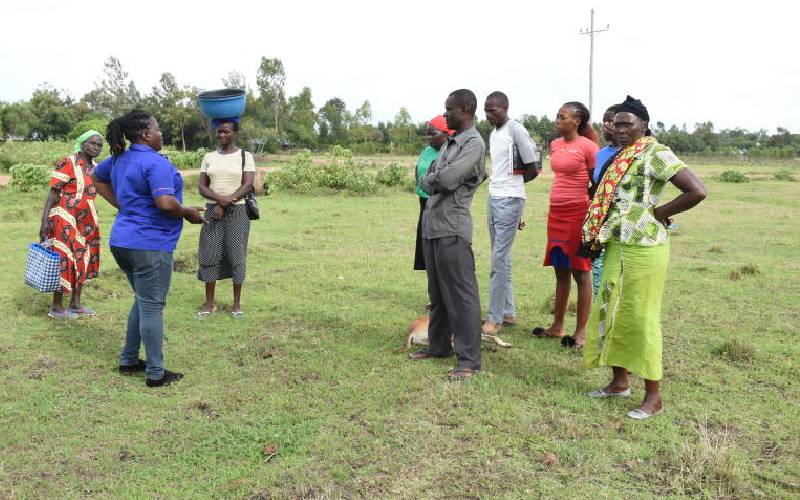×
The Standard e-Paper
Smart Minds Choose Us

Members of Miti Mbili Nam Oyiech Population Self Help Group deliberate at the field where they want to set up fish ponds from money accrued from their table banking project, at Miti Mbili in Karachuonyo, Homa Bay County. [Kevine Omollo, Standard]
When Laureen Atieno lost her husband five years ago, a cloud of uncertainty engulfed her.